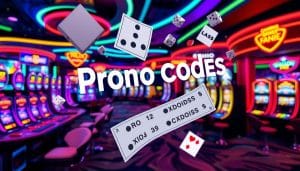If you’ve ever wondered how to make more informed decisions in gaming, understanding expected value calculations can be a game-changer. When you grasp the concept of expected value, you’re equipped to assess the potential outcomes of your choices and strategize accordingly. In the realm of gaming, this knowledge can give you a competitive edge by helping you weigh the risks and rewards with a clearer perspective. Whether you’re a casual player or a serious gamer, mastering expected value calculations can enhance your gameplay and decision-making skills.
Table of Contents
ToggleUnderstanding Expected Value in Gaming
The Mathematical Foundation of Expected Value
When delving into the realm of expected value in gaming, it’s essential to grasp the underlying mathematical principles that govern this concept. Expected value, often referred to as EV, serves as a crucial metric in decision-making processes across various gaming scenarios.
In its essence, expected value represents the average outcome weighted by the probability of each potential result. It is calculated by multiplying each possible outcome by the likelihood of it occurring and summing up these values. By analyzing the expected value of an action, you gain insights into the potential risks and rewards associated with it.
In a gaming context, understanding expected value allows you to make informed choices based on calculated probabilities rather than mere chance. Whether you’re playing slots, blackjack, roulette, poker, or any other game of chance, leveraging the concept of expected value can significantly impact your strategy and overall success.
For instance, in a game of blackjack, considering the expected value of hitting or standing based on your cards and the dealer’s upcard can help you determine the most advantageous move. By weighting the potential outcomes against their probabilities, you can make decisions that maximize your chances of winning in the long run.
Real-World Applications in Gaming
Expected value calculations find extensive real-world applications in the realm of gaming, both in traditional casinos and online platforms. From slots to table games, players can benefit from applying expected value analysis to optimize their gameplay and enhance their winning potential.
One common application of expected value in gaming relates to assessing the return to player (RTP) rates of different casino games. RTP represents the percentage of wagered money that a slot machine or casino game is expected to return to players over time. By comparing the RTP of various games, players can choose ones with higher expected returns, increasing their chances of winning.
Moreover, expected value calculations play a crucial role in evaluating the house edge of casino games. The house edge reflects the statistical advantage that the casino holds in a particular game, influencing player odds and potential winnings. Understanding the expected value of different bets and strategies enables players to navigate games with lower house edges, ultimately enhancing their profitability.
In online gaming, where virtual casinos operate based on complex mathematical models, expected value calculations help players assess the provably fair nature of games. Analyzing the expected returns and probabilities allows gamers to make data-driven decisions and identify opportunities where they hold a statistical edge over the house.
By incorporating expected value analysis into your gaming strategy, you can harness the power of probability and statistics to make calculated moves, improve your win rates, and elevate your overall gaming experience. Whether you’re a casual player seeking entertainment or a serious gamer aiming for consistent profits, mastering expected value calculations can be a game-changer in your gaming journey.
The Importance of Expected Value in Game Design

Understanding the Importance of Expected Value in Game Design is crucial for making informed decisions that can greatly impact your overall gameplay strategy. Expected Value, commonly referred to as EV, represents the average outcome of an event weighed by the probability of each possible result. By analyzing the Expected Value of different actions in games such as blackjack or roulette, you can make strategic choices based on calculated probabilities rather than relying solely on luck.
Balancing Risk and Reward
When considering Balancing Risk and Reward in game design, Expected Value serves as a fundamental concept. It allows you to assess the potential risks and rewards associated with each decision you make during gameplay. By analyzing the Expected Value, you can determine whether a particular action is worth taking based on its potential outcomes and probabilities. This balance between risk and reward is essential in creating engaging and strategic gameplay experiences.
Creating Engaging Gameplay Experiences
Expected Value Calculations play a significant role in Creating Engaging Gameplay Experiences. Game designers can utilize Expected Value analysis to create levels, challenges, or scenarios that offer players meaningful choices with varying risks and rewards. By incorporating elements that require players to evaluate Expected Values, designers can enhance the strategic depth of the game, keeping players actively engaged and challenged throughout their gaming experience.
Incorporating Expected Value analysis in game design not only enriches the player experience but also provides a framework for developing games that offer meaningful decision-making opportunities. By understanding the balance between risk and reward and utilizing Expected Value calculations, game designers can create captivating gaming experiences that keep players coming back for more.
Expected Value Calculations in Different Genres of Games
Expected Value in Casino Games
In casino games such as blackjack or roulette, understanding expected value (EV) is crucial for making informed decisions. By assessing the EV of various actions, you can enhance your gameplay strategies and increase your chances of success. For instance, in blackjack, knowing the EV of hitting, standing, or doubling down can help you make optimal choices based on calculated probabilities. This analysis allows you to weigh the potential outcomes and select the most advantageous move, rather than relying solely on chance.
Role of Expected Value in Strategy Games
Expected value plays a significant role in strategy games by enabling players to evaluate the potential outcomes of their decisions. In games where strategic thinking and planning are key, knowing the EV of different moves can guide you towards the most advantageous path. Whether you are playing a real-time strategy game, a turn-based strategy game, or a multiplayer online battle arena (MOBA) game, understanding the expected value of your actions can give you a competitive edge. It allows you to anticipate the consequences of your choices and strategically position yourself for success.
Identifying Expected Value in Puzzle and Board Games
Even in puzzle and board games, expected value calculations can influence your gameplay decisions. By analyzing the potential payoffs and risks associated with each move, you can improve your problem-solving skills and enhance your overall gaming experience. Whether you are trying to solve a complex puzzle, plan your next chess move, or strategize in a board game like Monopoly, considering the expected value of your actions can help you make smarter and more calculated moves. This approach adds a strategic element to gameplay and challenges you to think critically about the possible outcomes of your decisions.
The Impact of Expected Value on Player Decisions
In gaming, understanding Expected Value (EV) is crucial for making informed decisions that can affect your gameplay strategies significantly. By analyzing the potential outcomes of actions based on calculated probabilities, you can enhance your gaming experiences and increase your chances of success across various genres such as blackjack, roulette, strategy games, puzzle games, and board games. Incorporating expected value analysis allows you to balance risk and reward effectively, creating engaging gameplay moments and offering meaningful decision-making opportunities.
How Players Use Expected Value to Make Choices
When you dive into a game, especially in the realm of casino games where odds play a significant role, the concept of Expected Value becomes a powerful tool in your hands. By evaluating the potential gains or losses tied to each decision you make, you can strategize your moves for a more favorable outcome. Let’s say you’re playing a round of blackjack, and based on the EV calculations, you realize that hitting in a specific scenario gives you a higher expected value than standing. This information empowers you to make the optimal choice to maximize your winning potential.
In strategy games, whether it’s deciding which unit to deploy or which path to take, considering the Expected Value of each option helps you make strategic choices that can turn the tide of the game in your favor. Puzzle games also benefit from EV calculations when you’re faced with multiple moves and need to figure out the most advantageous one. By applying EV analysis, you can approach each puzzle with a methodical mindset, aiming for the solution that offers the highest expected value.
The Psychological Aspects of Expected Value in Gaming
Apart from its mathematical essence, Expected Value in gaming influences your psychological approach to decision-making. Knowing that your choices are backed by calculated probabilities can boost your confidence and cognitive abilities during gameplay. It instills a sense of control and rationality, which are essential elements for making sound decisions in gaming environments where chance and skill intertwine.
The psychological impact of EV is further accentuated in competitive gaming scenarios where players aim to outsmart their opponents strategically. By incorporating EV considerations into your gameplay, you not only elevate your decision-making processes but also sharpen your analytical thinking and adaptability. This psychological aspect adds depth to your gaming strategies, enabling you to approach challenges with a calculated mindset backed by the principles of Expected Value.
By integrating Expected Value calculations into your gaming repertoire, you equip yourself with a powerful tool that enhances your decision-making capabilities, boosts your strategic acumen, and amplifies your overall gaming experience.
Utilizing Expected Value in gaming empowers you to navigate complex decision-making scenarios with confidence, precision, and strategic foresight. Whether you’re aiming for the perfect move in a strategy game or maximizing your odds in a casino setting, the application of EV analysis can be the key to unlocking new levels of gameplay proficiency.
Advanced Techniques in Expected Value Calculations
Utilizing Software and Tools for Accurate Calculations
When delving into advanced Expected Value (EV) calculations in gaming, leveraging specialized software and tools can significantly enhance your precision and efficiency. Utilize software tailored for EV calculations to streamline your analysis process and ensure accurate results. These tools are designed to handle complex mathematical computations, reducing the margin for errors in your calculations.
By employing dedicated EV calculation software, you can expedite decision-making processes in various gaming scenarios, whether in casino games like blackjack or strategy-based games. These tools enable you to input game-specific variables and parameters, providing you with precise EV values that guide your strategic choices. Incorporating such software into your gaming toolkit empowers you to make informed decisions backed by reliable numerical data.
Moreover, these tools offer advanced features such as simulation capabilities, customizable variables, and real-time updates, allowing you to adapt your strategies dynamically based on changing gaming conditions. Whether you are analyzing blackjack win probabilities or assessing poker site player winnings, utilizing specialized software ensures that your EV calculations are thorough and accurate, giving you a competitive edge in your gameplay.
Case Studies: Expected Value in Professional Gaming
Exploring case studies that demonstrate the application of Expected Value in professional gaming can provide valuable insights into strategic gameplay and decision-making processes. Analyzing how EV influences player actions and outcomes in real-world gaming scenarios showcases the practical relevance of mastering EV calculations.
In the realm of virtual gambling, professionals rely on EV analysis to assess their win rates, optimize their strategies, and maximize their overall earnings. By studying player winnings statistics and analyzing game mathematical models, experts in the field of online casino gaming can fine-tune their approaches to align with optimal strategy win rates.
For instance, examining blackjack win probability figures allows professional players to make informed decisions during gameplay, strategically leveraging their understanding of EV to capitalize on favorable situations and mitigate risks. Similarly, investigating roulette payout ratio reports enables gamers to assess the expected returns on their bets, aiding them in determining the most profitable actions based on house edge statistical breakdown.
By immersing yourself in case studies that highlight the interplay between Expected Value calculations and professional gaming outcomes, you can glean actionable strategies and tactics to enhance your own gaming prowess. Drawing on these real-world examples, you can refine your decision-making skills, optimize your gameplay strategies, and strive for sustained success in the competitive gaming landscape.
Conclusion
You’ve explored the critical role of Expected Value (EV) calculations in gaming, witnessing how they shape decisions and elevate gameplay strategies across diverse genres. From casinos to strategy games, EV guides players towards optimal choices, fostering confidence and sharpening strategic acumen. By delving into advanced EV techniques and leveraging specialized software, gamers can enhance precision and streamline calculations for improved outcomes. Real-life case studies in professional gaming have underscored the tangible impact of EV on player actions and results, underscoring its practical significance in boosting earnings and refining strategies. Through continuous study and application of EV principles, you can hone your decision-making prowess and strive for success in the competitive realm of gaming.
Frequently Asked Questions
What is Expected Value (EV) and why is it important in gaming?
Expected Value (EV) represents the average outcome of a decision in the long run, helping players make optimal choices based on probability and payoff. In gaming, EV guides strategies by quantifying the potential value of different decisions, enhancing gameplay and decision-making skills.
How do players use Expected Value (EV) in casino games?
Players apply EV calculations to assess the odds of winning against the potential payouts in casino games like poker or blackjack. By comparing EVs of different actions, players can make informed decisions that maximize expected returns over time.
Why is Expected Value (EV) crucial in strategy games?
In strategy games, EV aids players in evaluating the possible outcomes of different moves, enabling them to choose the most advantageous options. By considering EV, players can anticipate opponents’ actions and develop winning strategies.
How does Expected Value (EV) impact confidence and strategic thinking?
Understanding EV builds players’ confidence by providing a rational basis for decision-making. By calculating EV, players can make strategic choices based on expected outcomes rather than emotions, leading to improved gameplay and results.
What advanced techniques can enhance Expected Value (EV) calculations?
Advanced techniques such as Monte Carlo simulations and decision trees can refine EV calculations by accounting for complex scenarios and maximizing precision. Utilizing specialized software further streamlines the process, improving efficiency and accuracy in decision-making.
How does Expected Value (EV) influence professional gaming?
Professional gamers leverage EV to optimize their strategies and maximize earnings in competitive gameplay. Case studies demonstrate how EV-driven decisions impact player actions and outcomes, emphasizing its practical significance in achieving success in professional gaming.





















